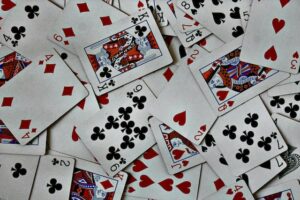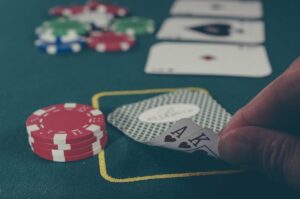 A comprehensive bill, addressing many different elements of live and online gambling in Pennsylvania has been introduced into the House of Representatives.
A comprehensive bill, addressing many different elements of live and online gambling in Pennsylvania has been introduced into the House of Representatives.
The prospects for a speedy passage of online gambling regulation in Pennsylvania took a knock earlier this week, when George Dunbar and seven co-sponsors introduced a comprehensive bill covering many different elements of live and online gambling into the House of Representatives.
The 209 page bill (HB 392) includes proposals to regulate online gambling and Daily Fantasy Sports, allow gaming terminals inside airports and authorize multi-state slot machines with progressive jackpots. It also includes a proposal to resolve the [geolink href=”https://www.usafriendlypokersites.com/casino-tax-issue-thwart-pa-igaming-regulation/”]local share tax[/geolink] issue.
Although the majority of the proposals are similar to those [geolink href=”https://www.usafriendlypokersites.com/prospects-regulated-online-poker-pennsylvania/”]passed by the House of Representatives[/geolink] last year, the comprehensive nature of the bill could be its downfall. The more comprehensive the bill, the higher the likelihood that somebody will find something to object to.
Few Changes in Respect of Online Gambling
Other than a few changes relating to technical specifications and administration, the proposals for online gambling in respect of fees and taxation are no different from those proposed in recent years:
- An initial fee of $8 million and an annual renewal fee of $250,000 for an interactive gaming license.
- An initial fee of $2 million and an annual renewal fee of $100,000 for interactive gaming operators.
- A 16% tax rate would be charged against Gross Gaming Revenues – 14% going to the state, and the remaining 2% going to host communities.
However, despite the length of the bill, the proposals fail to address concerns that prevented its passage through the Senate last year. The primary concern is the tax rate. Senators believe that online gambling should be taxed at a much higher rate and, early last month, Senate Minority Leader Jay Costa published his [geolink href=”https://www.usafriendlypokersites.com/high-taxes-will-eliminate-chances-online-poker-pa/”]own set of proposals[/geolink] that included a tax rate of 25%.
As in previous years, the proposals also fail to take player protection into account. Whereas it is stipulated that funds due to the state have to be held in trust, player funds have no such protection. If an online gambling operator was to disappear overnight, players would have no way of recovering their bankrolls from either the site or the Pennsylvania Gaming Control Board.
Casinos Also at Odds about What They Want
In the past, it has been largely the case that eleven of Pennsylvania´s twelve brick and mortar casinos have been on board with the regulation of online gambling – the sole objector being the Sheldon Adelson owned Sands Casino in Bethlehem. However, a few cracks have started to appear in the support for regulation, and this could also delay – or prevent – the passage of Representative Dunbar´s bill.
Last October, Eric Schippers – the Senior Vice President of Government Relations for the Penn National Racecourse and Casino – told Senators that the Penn National opposed out-of-state operators (PokerStars, 888Poker, WSOP.com, etc.) partnering up with Pennsylvania´s casinos to offering a branded service. This objection – if accepted – would likely prevent interstate online poker compacts.
The Senator covering the jurisdiction in which the Sands Bethlehem Casino is situated – Lisa Boscola – has suggested that the gap in the budget meant to be filled by the regulation of DFS and online gambling could be filled by [geolink href=”https://www.usafriendlypokersites.com/another-potential-spanner-works-pa-igaming/”]regulating video poker machines[/geolink] in bars, social clubs and volunteer fire halls. However, this suggestion has been opposed by Michael Bean – CEO of the Mohegan Sun Casino – who believes that regulated DFS and online gambling would not hurt the casino industry, but video poker machines would.
It is estimated there are 40,000 video poker machines already operating illegally in Pennsylvania, and that legalizing them would raise more than $300 million for the state – more than twice the amount forecast by those in favor of regulated online gambling. Furthermore, there are still some in the Senate who oppose any expansion of gambling on the grounds of cannibalization, job losses, problem gambling and underage gambling.
Due to the additional opportunities for objections in such a comprehensive bill, it would appear that the new chairman of the House Gaming Oversight Committee – Scott Petri – will have his work cut out in order to keep everybody happy when HB 392 gets heard for the first time by the committee next week.



